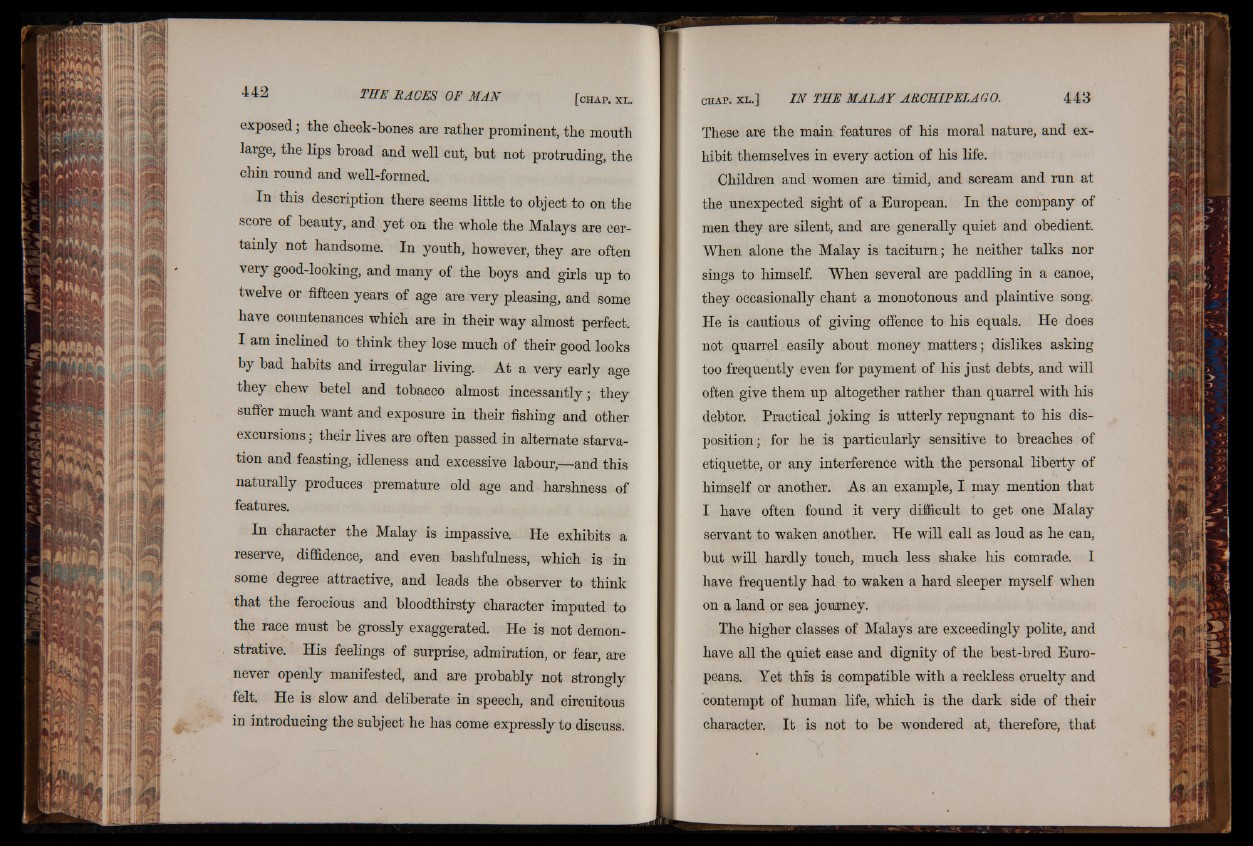
exposed ; the cheek-bones are rather prominent, the mouth
large, the lips broad and well cut, but not protruding, the
chin round and well-formed.
In this description there seems little to object to on the
score of beauty, and yet on the whole the Malays are certainly
not handsome. In youth, however, they are often
very good-looking, and many of the boys and girls up to
twelve or fifteen years of age are very pleasing, and some
have countenances which are in their way almost perfect.
I am inclined to think they lose much of their good looks
by bad habits and irregular living. At a very early age
they chew betel and tobacco almost incessantly ; they
suffer much want and exposure in their fishing and other
excursions ; their lives are often passed in alternate starvation
and feasting, idleness and excessive labour,—and this
naturally produces premature old age and harshness of
features.
In character the Malay is impassive. He exhibits a
reserve, diffidence, and even bashfulness, which is in
some degree attractive, and leads the observer to think
that the ferocious and bloodthirsty character imputed to
the race must be grossly exaggerated. He is not demonstrative.
His feelings of surprise, admiration, or fear, are
never openly manifested, and are probably not strongly
felt. He is slow and deliberate in speech, and circuitous
in introducing the subject he has come expressly to discuss.
These are the main features of his moral nature, and exhibit
themselves in every action of his life.
Children and women are timid, and scream and run at
the unexpected sight of a European. In the company of
men they are silent, and are generally quiet and obedient.
When alone the Malay is taciturn; he neither talks nor
si rigs to himself. When several are paddling in a canoe,
they occasionally chant a monotonous and plaintive song.
He is cautious of giving offence to his equals. He does
not quarrel easily about money matters; dislikes asking
too frequently even for payment of his just debts, and will
often give them up altogether rather than quarrel with his
debtor. Practical joking is utterly repugnant to his disposition
; for he is particularly sensitive to breaches of
etiquette, or any interference with the personal liberty of
himself or another. As an example, I may mention that
I have often found it very difficult to get one Malay
servant to waken another. He will call as loud as he can,
but will hardly touch, much less shake his comrade. I
have frequently had to waken a hard sleeper myself when
on a land or sea journey.
The higher classes of Malays are exceedingly polite, and
have all the quiet ease and dignity of the best-bred Europeans.
Yet this is compatible with a reckless cruelty and
contempt of human life, which is the dark side of their
character. It is not to be wondered at, therefore, that